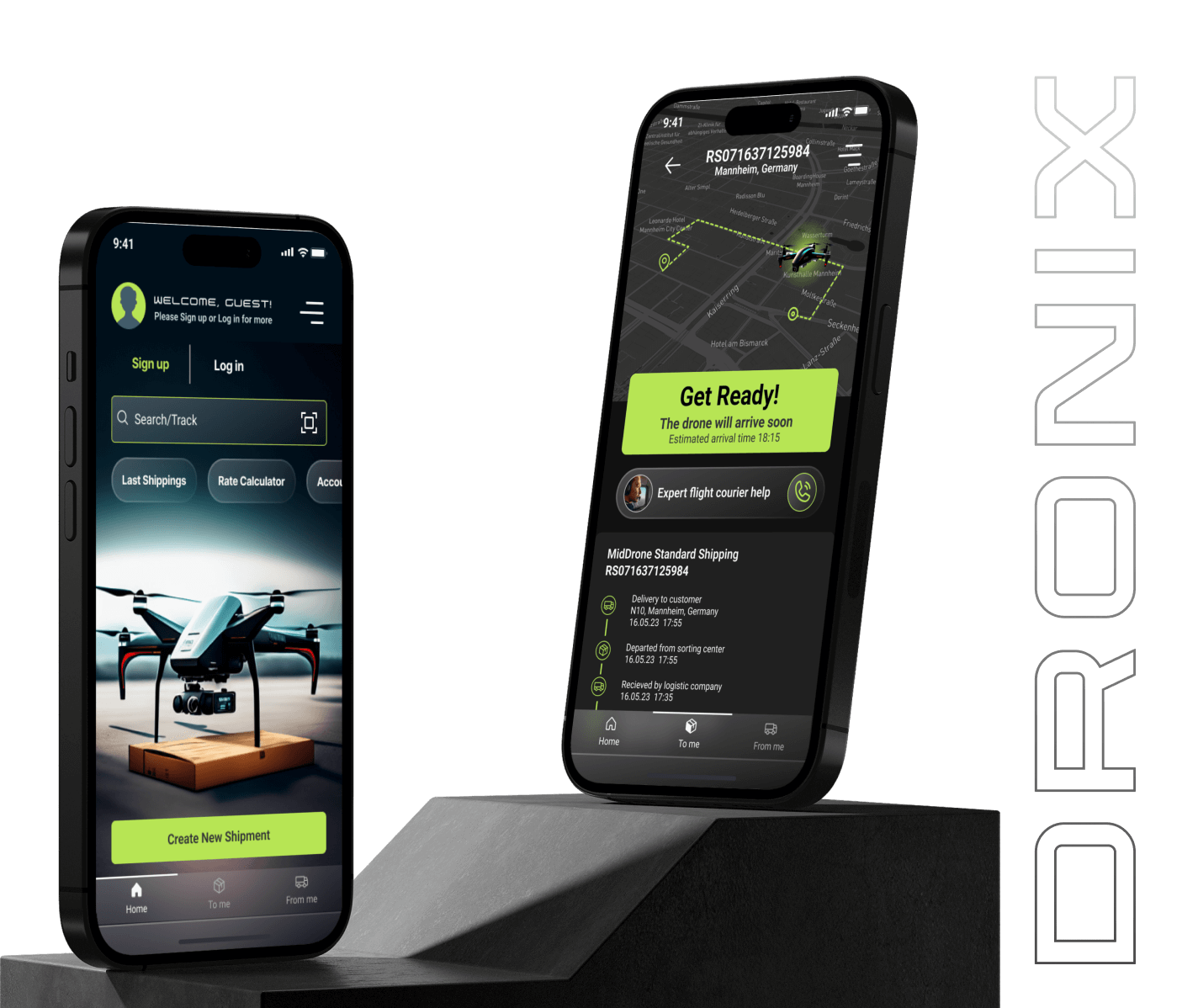
Mobile App Design
- UI/UX Design
- Web Design
- Logo Design
- Research
Project overview
After dealing with all the restrictions and challenges from the Covid lockdowns, we saw a big problem that people faced difficulties going outside to get essential goods, or had limited access to them.
We decided to create a drone delivery solution that serves individuals in need of urgent deliveries, businesses optimizing their logistics, and remote communities lacking traditional shipping options. The user-friendly interface and automated tracking system empower users to effortlessly schedule, track, and manage drone deliveries, ensuring a hassle-free and convenient experience.
Project duration – 4 weeks
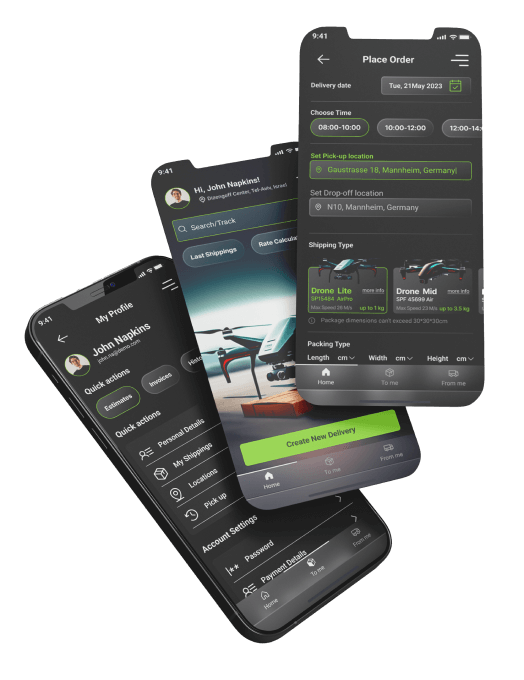
Goal
Our aim is to create a user-friendly drone delivery solution to efficiently bring essential items to those in need. Our goal is to impress users with technology while ensuring simplicity in their daily interactions. By leveraging drones, we aim to provide a cost-effective and speedy delivery solution, making packages accessible, reliable, and affordable.
Challenges
The drone delivery app addresses the challenge of providing a swift, reliable, and cost-effective solution for delivering essential items to people living in remote areas, enhancing accessibility and convenience in their daily lives.
Design stages
- Empathize
- Define
- Ideate
- Design
- Testing
- Primary & Secondary Research
- Design Goals
- Sketching
- Low & high-fidelity prototyping
- Usability testing
- Survey & Users interviews
- Personas
- Problem Statement
- Paper & digital wireframing
- Visual/UI design
- User journey map
- User Flow
- Brand identity
- Iterations on design
Since using drones for deliveries is still new, we had to do research to understand user’s goals, needs and pain points.
We started with secondary research, to analyze existing drone delivery services. That helped identify patterns and best practices. Next, we conducted primary research, engaging with potential users through surveys and interviews.
This allowed us to uncover nuanced user goals and needs, as well as pain points in the drone delivery experience. Based on this data we created User Personas.
Persona
I'm interested in exploring drone delivery to guarantee that all my customers can receive their medical treatments quickly and efficiently, regardless of their location.
John, a 35-year-old small business owner running a small pharmacy store, wants to reduce delivery costs and explore the world of drone delivery for his customers who live far away and have trouble coming to pick up. Reliable delivery is crucial for John, as his clients' satisfaction is his top priority.
John Blink
Age: 45
Education: Bachelor’s degree
Hometown: Houston,Texas
Family: Married with two kids
Occupation: Small business owner
Goals
• Time Efficiency
• Cost Savings
• Tracking and Visibility
• Be able to track delivery on all stages of it
• Simplified Logistics
Frustrations
• High costs or hidden fees
• Poor customer support
• Delivery delays whether due to weather conditions or technical difficulties
• Bad returning policy
Pain points
User interface complexity
The app may have a complex user interface, making it challenging for users to navigate and understand the various features.
Communication and notification challenges
Real-time communication between the drone, user, and the app is crucial for a successful delivery. However, interruptions or delays in notifications can lead to confusion.
Address accuracy and safety concerns
Users may input inaccurate or unsafe delivery locations, leading to potential safety hazards or failed deliveries
User flow
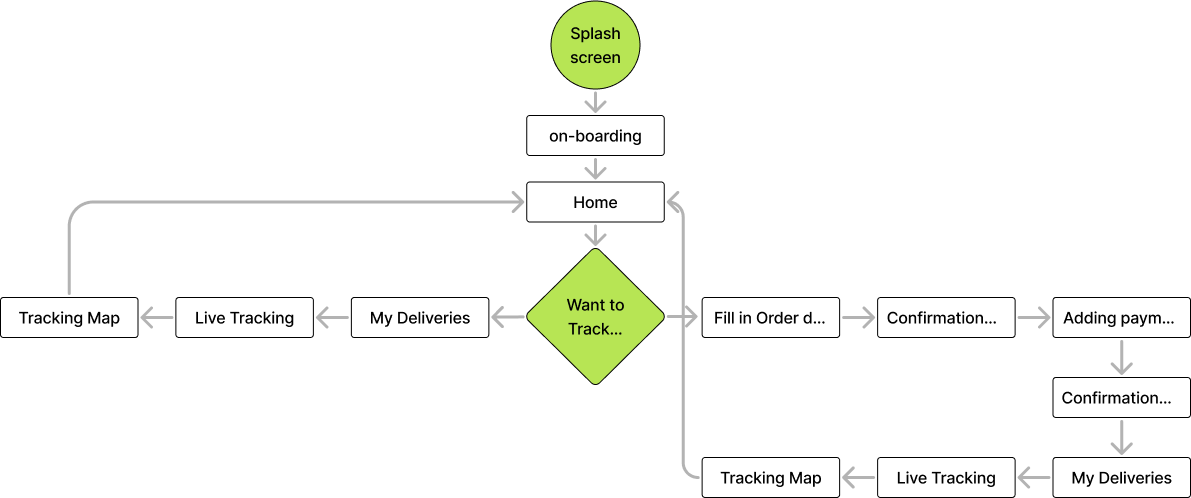
Sketches & wireframes
To visualize the overall structure and flow of the app before moving on to digital prototyping I ceated low and high fidelity wireframes first.
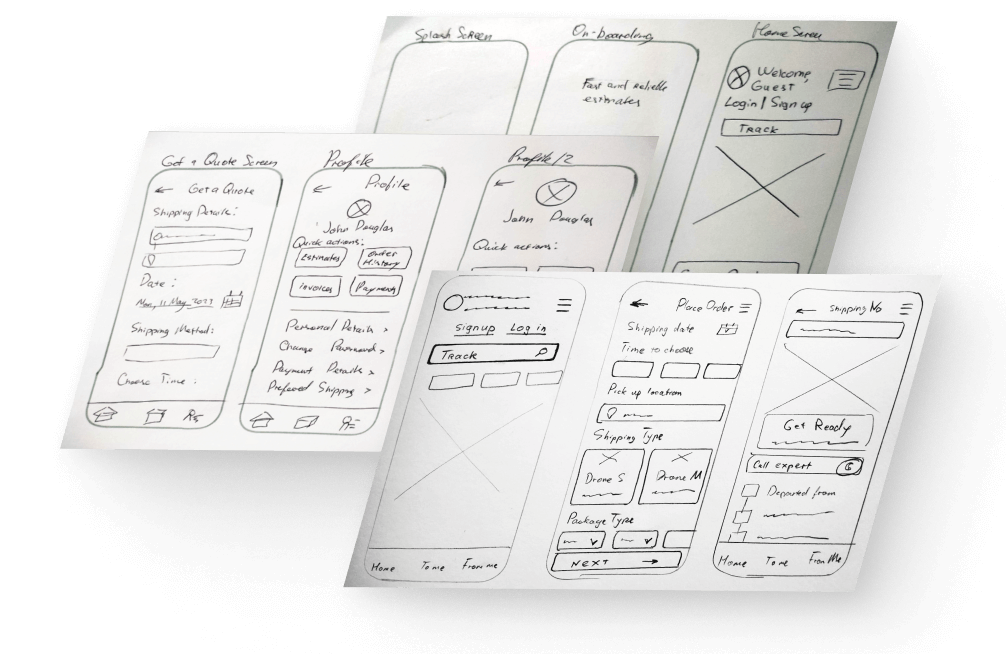
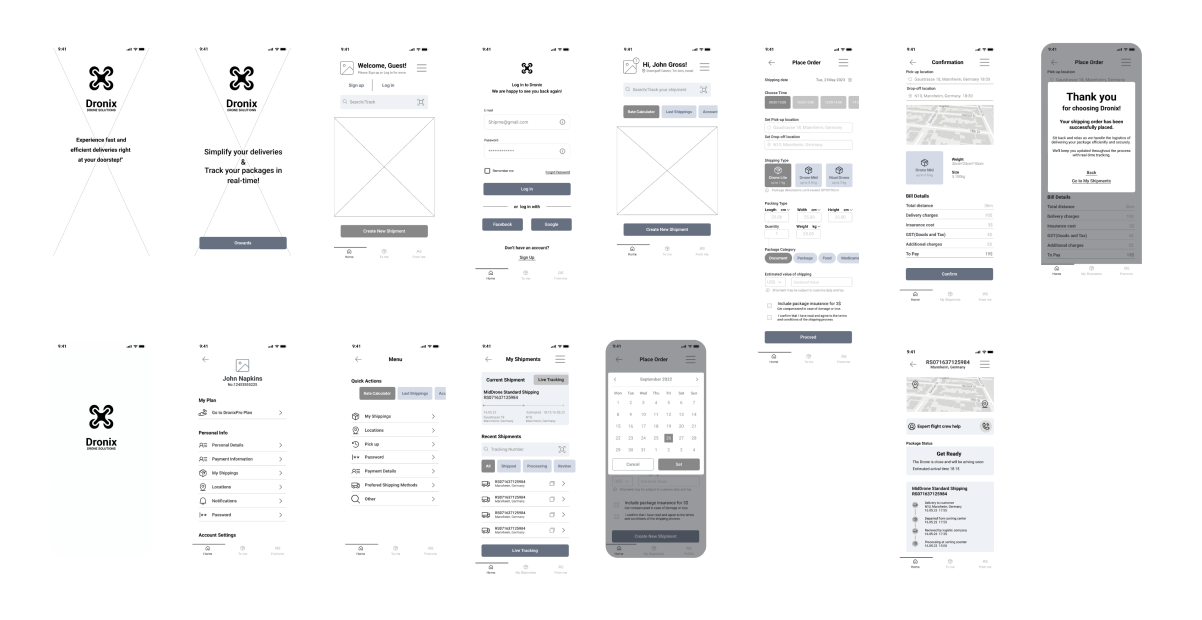
Paper wireframes enabled to gather feedback and make necessary adjustments early in the design phase.
On High-fidelity digital prototypes were conducted unmoderated usability studies.
Main usability test findings
- • Importance of providing a simplified sign-in option for users in later stages of using the app.
- • Users expressed a need for greater flexibility in terms of scale and time options when entering their shipping data.
- • Users require a clear confirmation of their shipping order.
- • Necessity of offering multiple payment options to users.
- • Reducing unnecessary Steps in Onboarding
- • The need for a quick navigation menu on the home page for improved user experience.
Usability studies
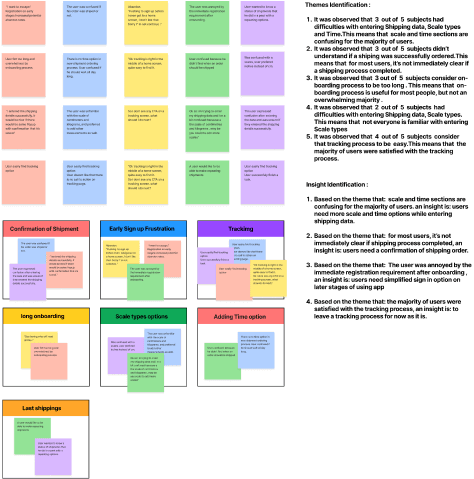
Logo design
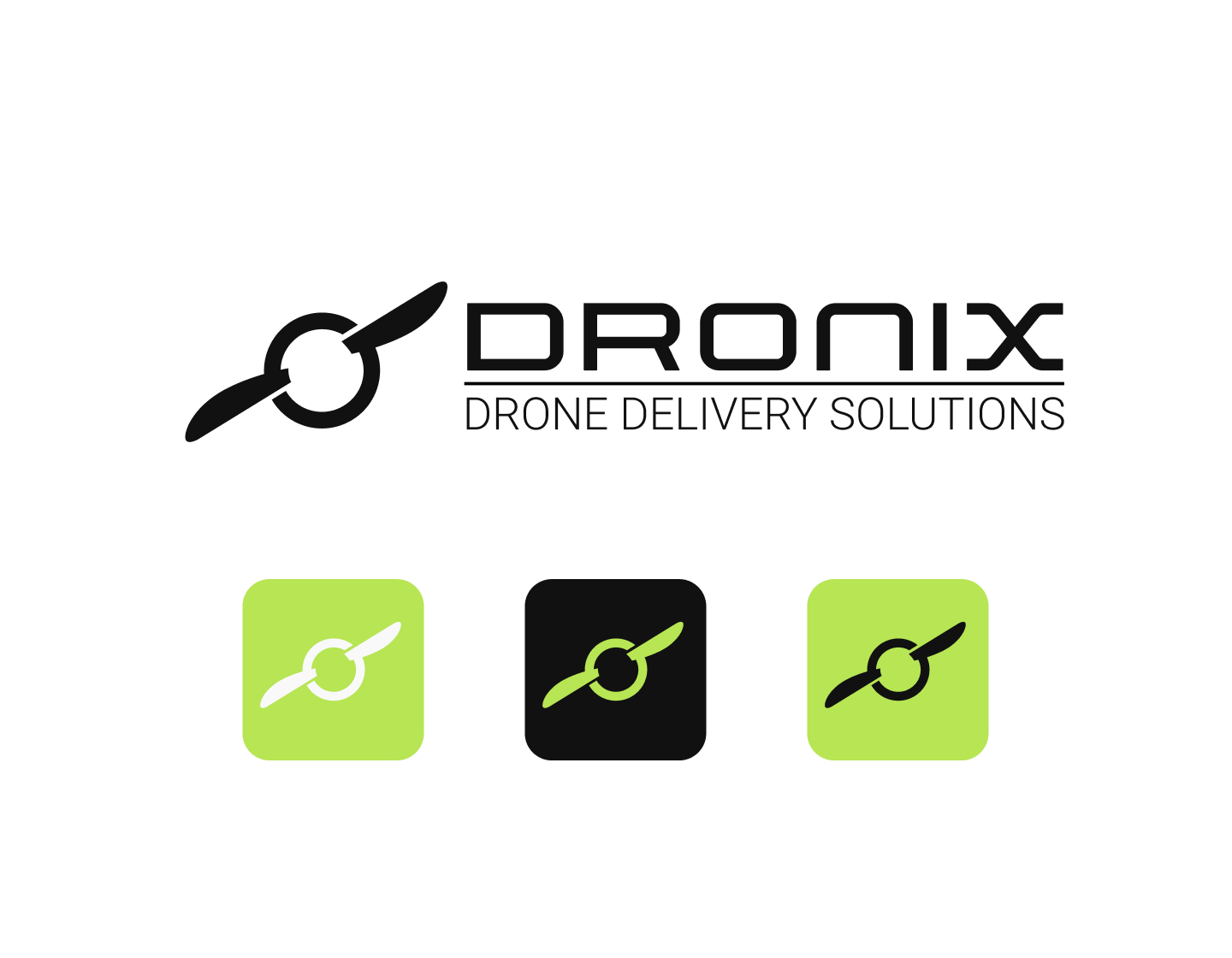
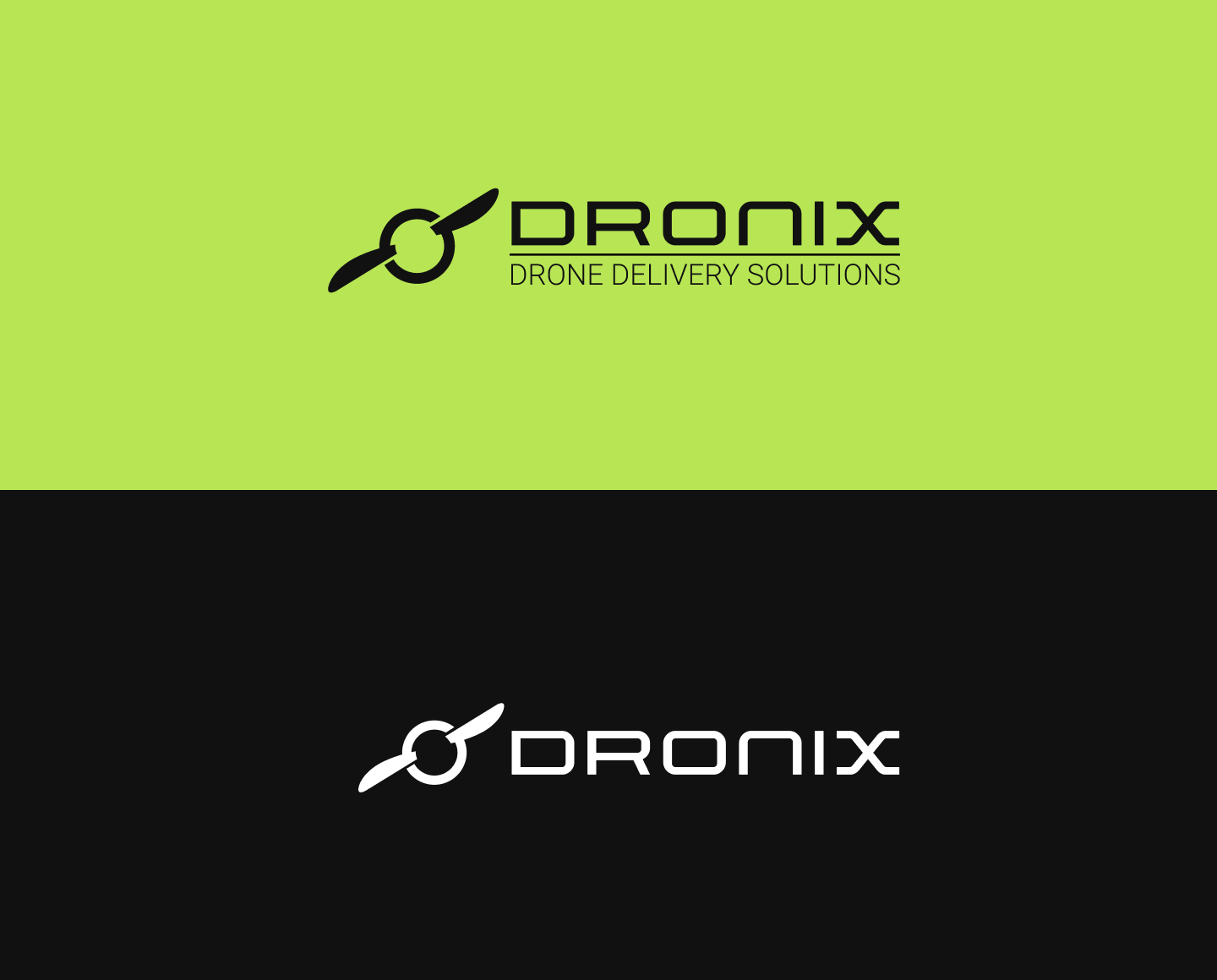
Typography & colors
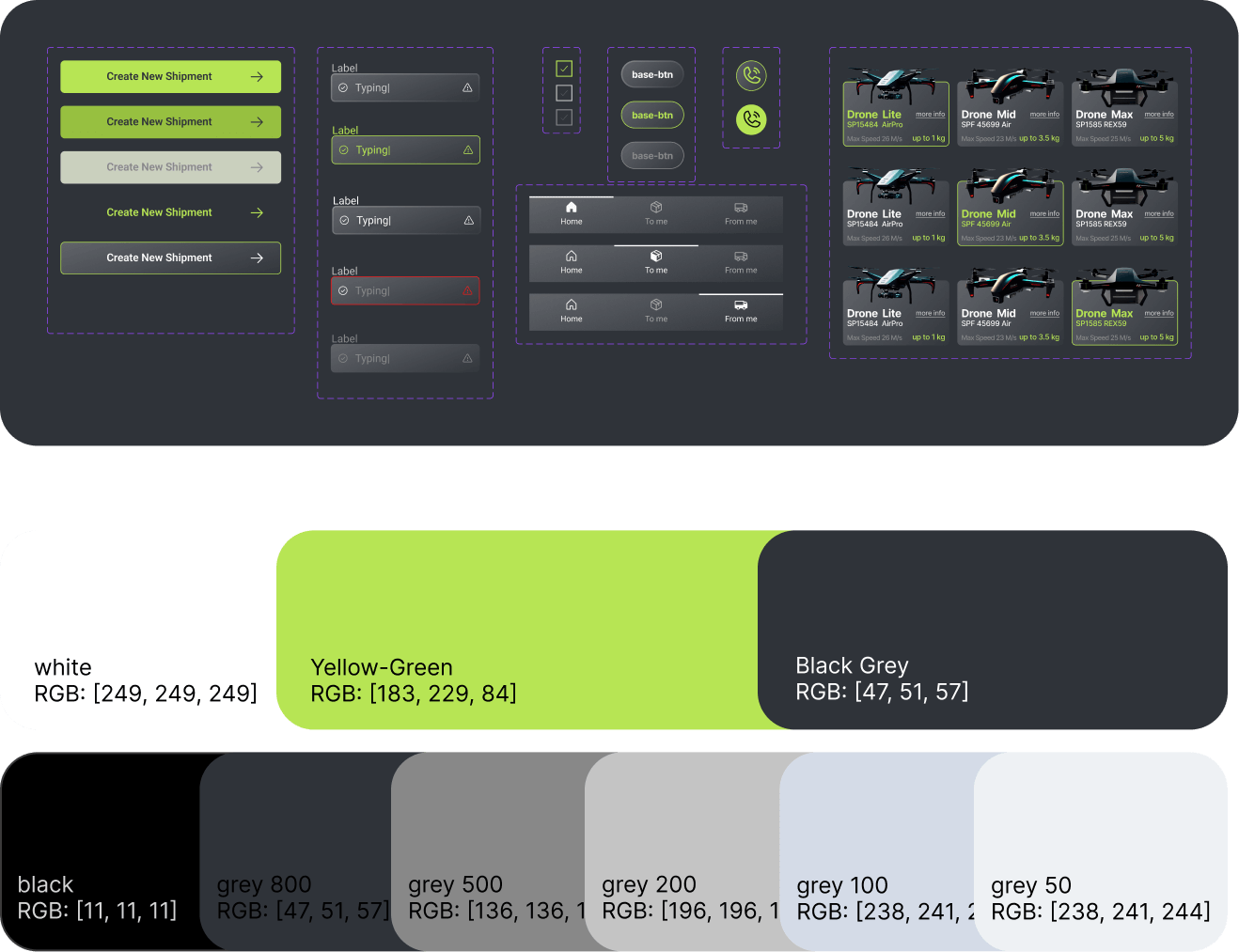
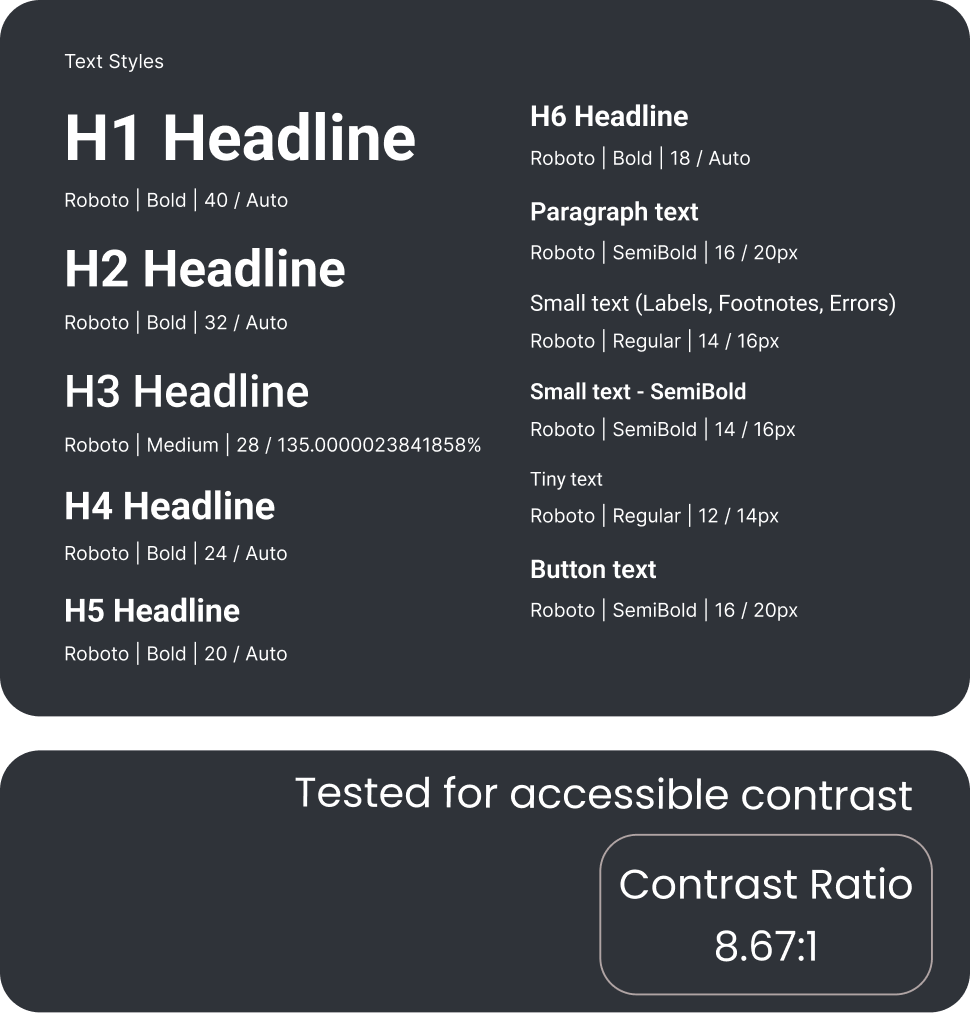
Visual design
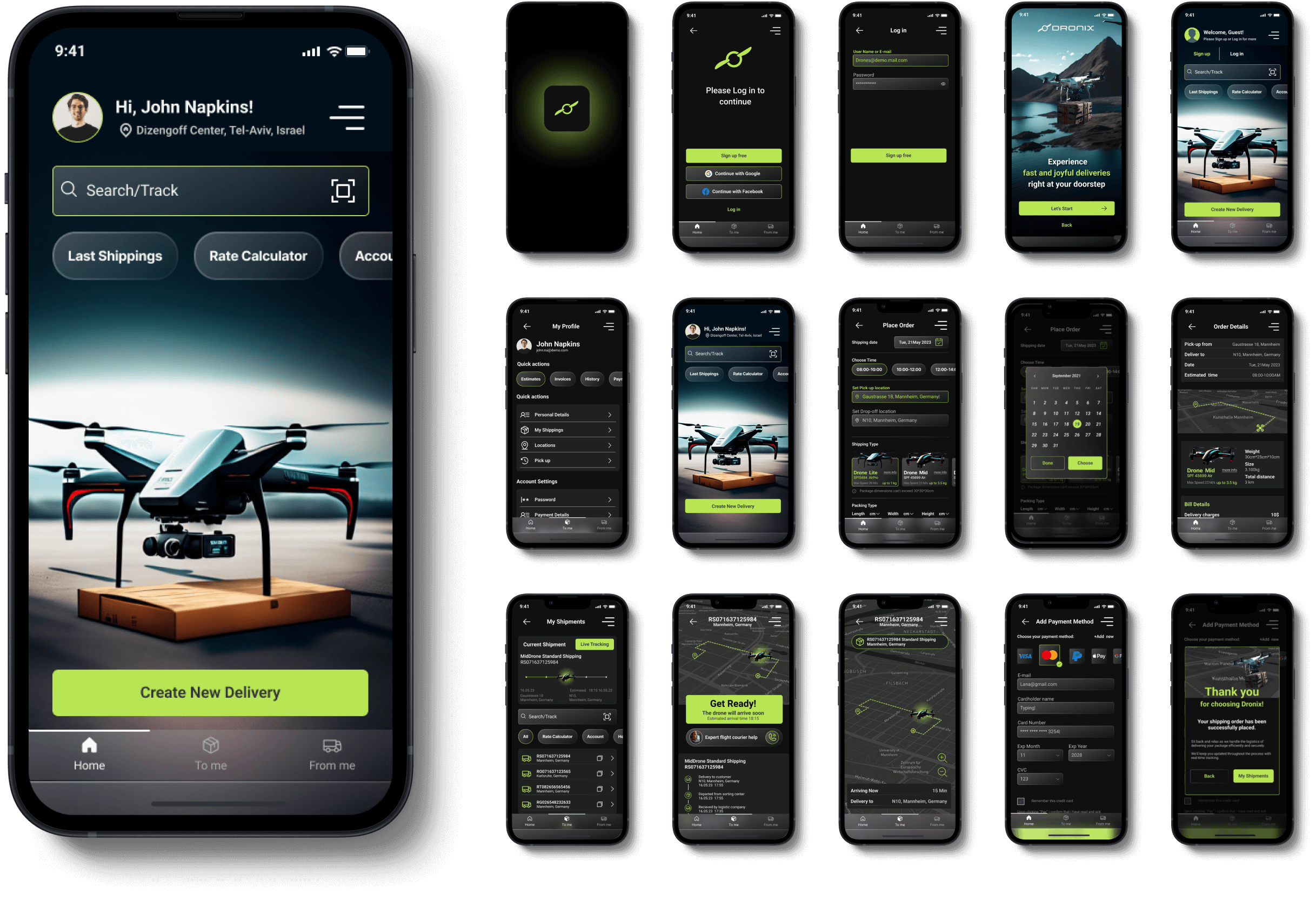
Take control of your deliveries. Easily select your preferred delivery date using our intuitive calendar.
Choose the delivery type that suits your preferences, whether it's speedy, eco-friendly, or convenient – it's all about your choice.
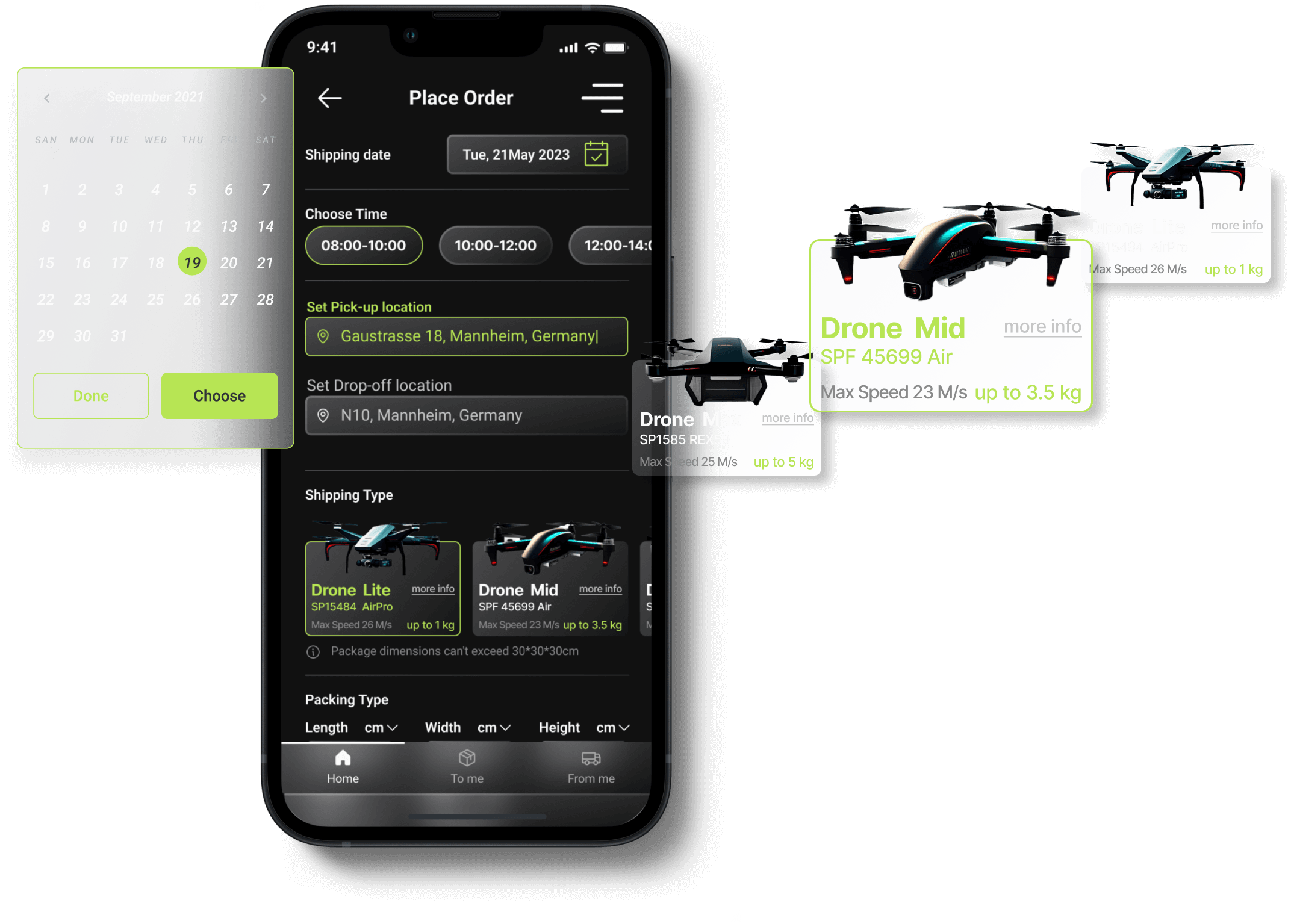
Double-check your order before finalizing your purchase on our confirmation screen.
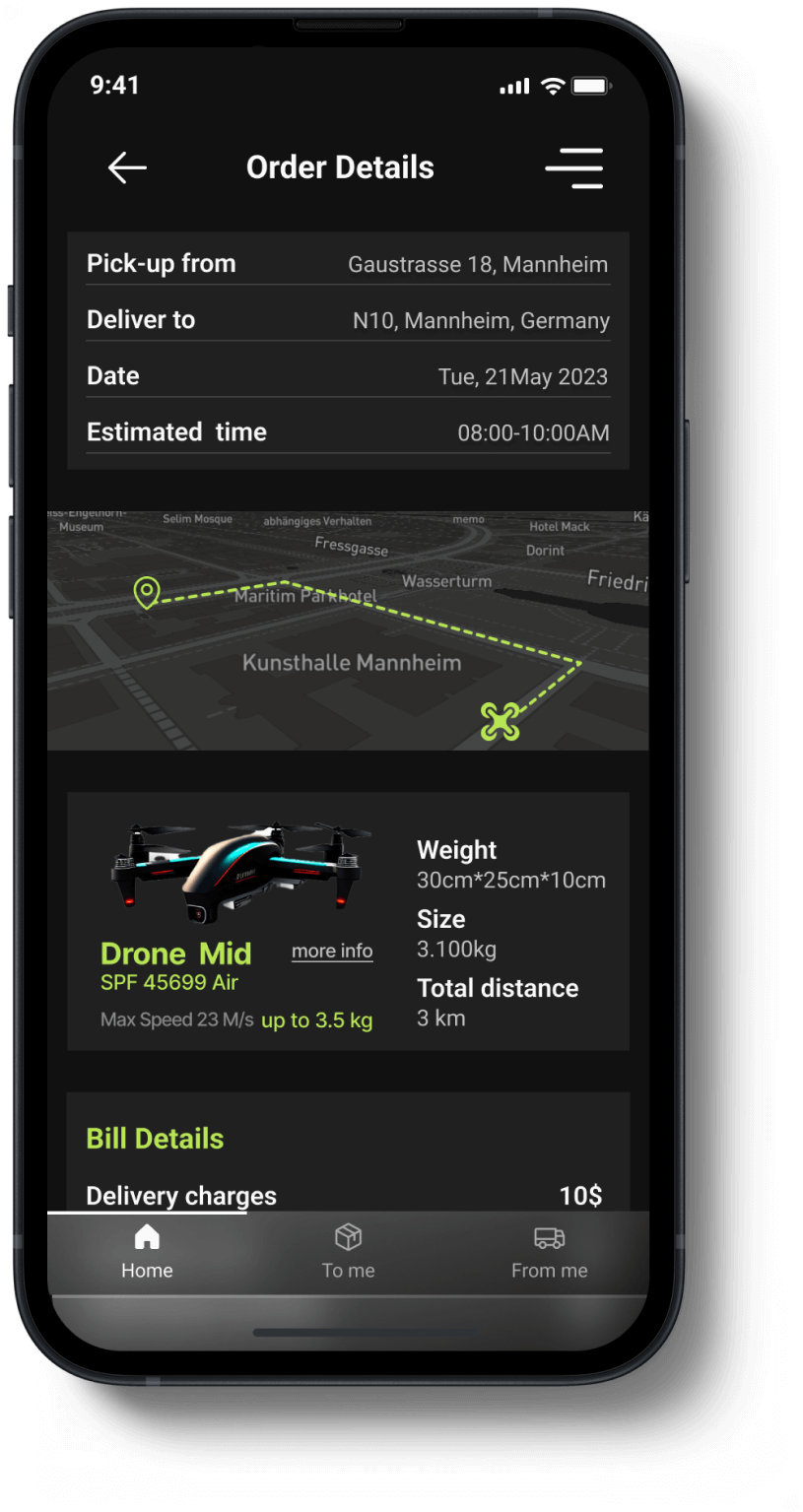
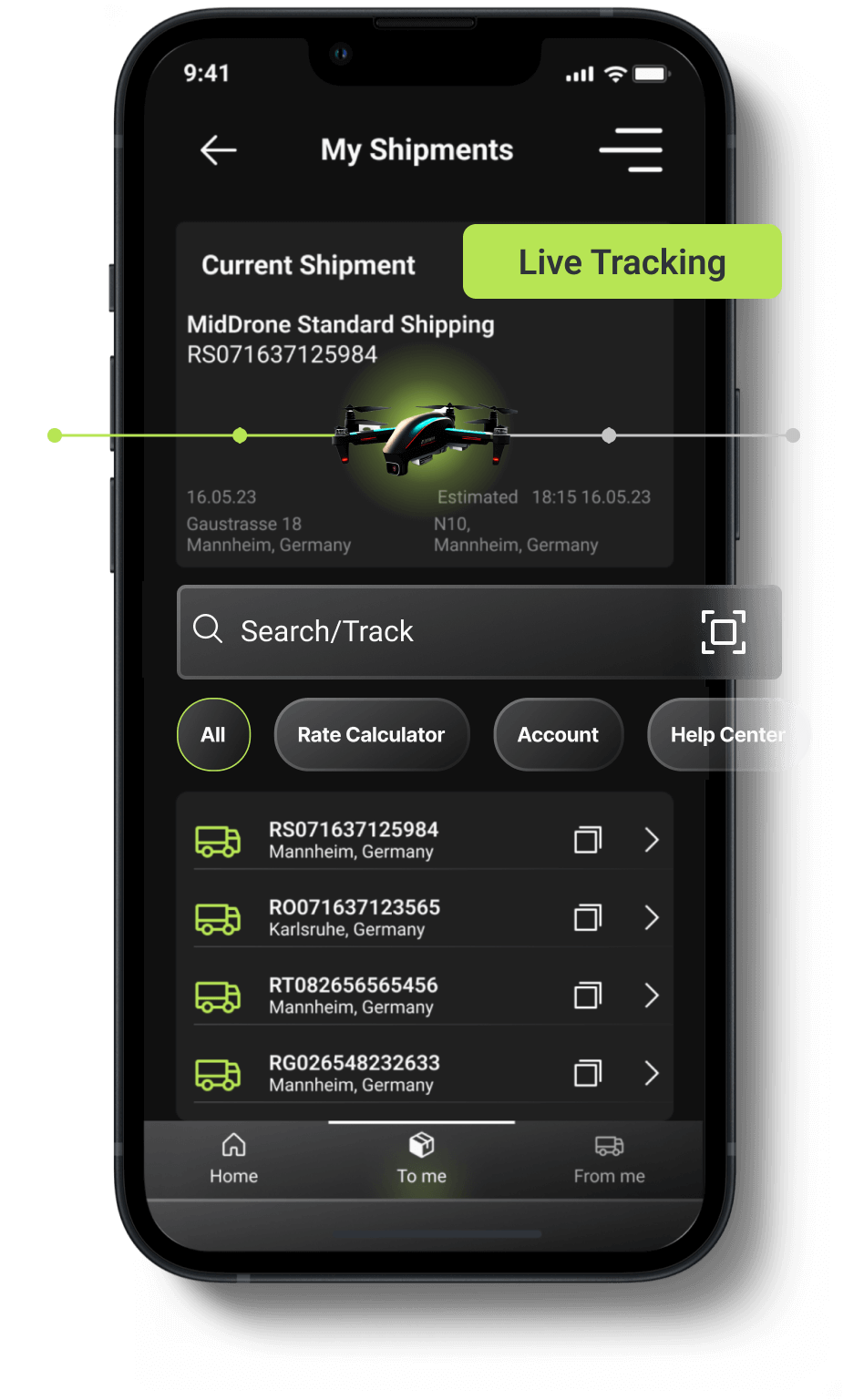
Experience lightning-fast searching with our QR code-enabled search feature. Simply scan a QR code, and find your delivery status.
Fast access to main features.
Watch your package's journey in real-time. Stay connected and informed with our live tracking feature.
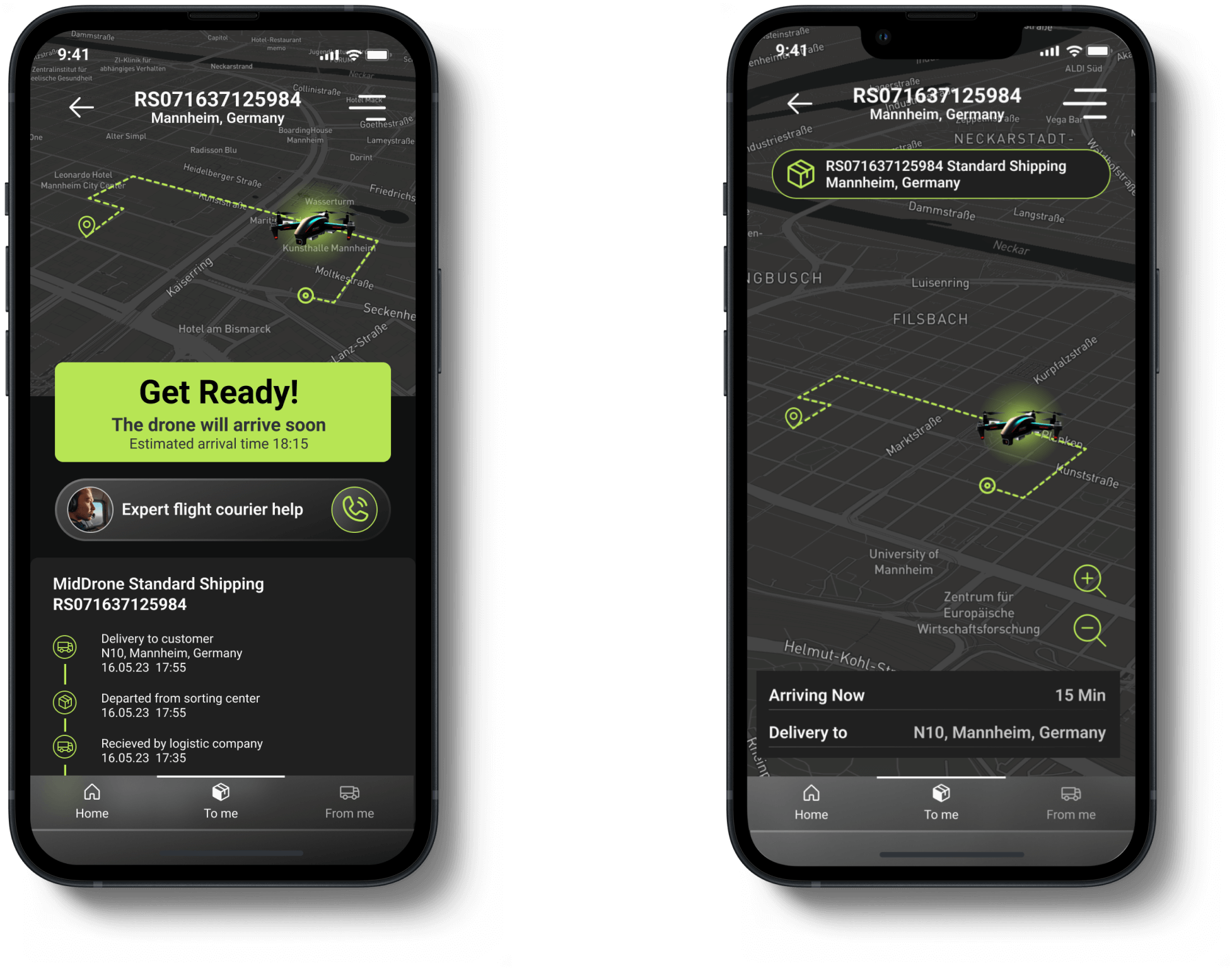
Summary
It was a pleasure to work on this project as part of my Google UX Certificate course. Exploring drone delivery solutions to bring essential items to people in remote areas presented challenge with immense potential impact.
Designing this app highlighted the pivotal role of User-Centric Design. Placing users’ needs first is crucial for creating an app that resonates with its intended audience. Embracing simplicity by focusing on essential features enhances the overall user experience, making navigation intuitive and user-friendly.
Prototyping and iterating helped refine usability and unveil innovative solutions. Prioritizing accessibility ensures inclusivity for diverse users, including those with disabilities. These insights will guide my future design endeavors, aiming to deliver exceptional user experiences.